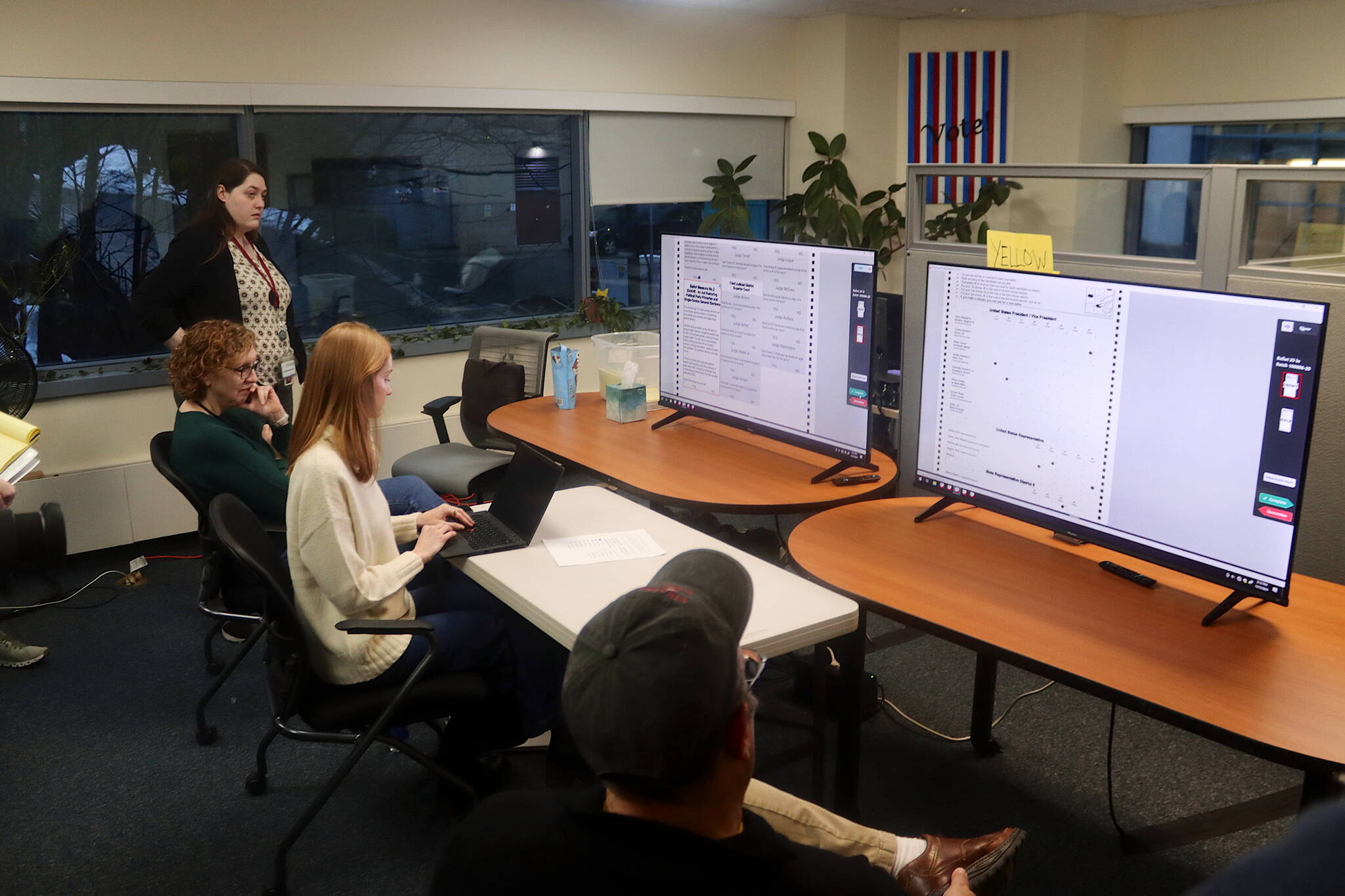This is a developing story.
A recount of a ballot measure to repeal ranked choice voting and open primaries in Alaska that failed by 737 votes in results certified Nov. 30 produced almost exactly the same tally after the six-day recount, coming up 743 votes short out of 321,203 cast, the Alaska Division of Elections reported Monday night.
The recount at the elections division director’s office in Juneau did result in 218 additional ballots being added to the initial certified total of 320,985, but the split among those ballots was essentially identical to the rest of those cast. The state by law had 10 days to complete the recount, which was done by scanning ballots on six high-speed Dominion machines and conducting hand counts of some precincts at random.
The Alaska Republican Party, which requested the recount that the state must pay for when the margin of victory is less than 0.5%, can still challenge the results in court. It was not immediately known Monday night if the party would pursue such a challenge.
Attorneys for the Republican party and the opposition group No On 2 monitored the recount that took place starting Tuesday afternoon and continued for 12-hour shifts during subsequent days. Only a relative handful of those scanned were challenged by either side for further review during the first couple of days, suggesting not enough would be questioned to affect the outcome.
A total of 340,981 ballot were cast in the general election, meaning 19,996 either had no choice checked, both choices checked or were otherwise invalid on the ranked choice repeal. By comparison, 2,804 ballots didn’t contain a valid choice for president, 11,426 in the U.S. House race, 24,075 for a ballot measure raising the minimum wage that was approved by voters and 80,243 for the retention of Alaska Supreme Court Justice Jennifer Stuart Henderson that also was approved.
Nationwide there were 36 statewide recounts in 6,929 general elections between 2000 and 2023 — with the outcome changing only three times, according to the nonpartisan research group FairVote.
“All three reversals occurred when the initial margin was less than 0.06% of all votes cast,” the group noted, adding the most recent reversal was in 2008.
Philip Izon, a Wasilla resident who launched the repeal effort after the 2022 election when ranked choice voting occurred for the first time in the state — has stated he intends to seek another repeal in two years.
• Contact Mark Sabbatini at mark.sabbatini@juneauempire.com or (907) 957-2306.


